Annapolis, MD; August 17, 2020—The Entomological Society of America congratulates the winners of its 2020 awards. The awards recognize scientists, educators, and students who have distinguished themselves through their contributions to entomology. Winners will be honored during Entomology 2020, ESA's Virtual Annual Meeting, taking place online November 11-25.
The following individuals are winners of the 2020 ESA professional, early career professional, and student awards.
Professional Awards
 William D. Hutchison
William D. Hutchison
University of Minnesota
This award, which is sponsored by Syngenta Crop Protection, recognizes outstanding contributions that have a direct relation to integrated pest management (IPM).
Dr. Bill Hutchison is a professor and extension entomologist in the Department of Entomology, University of Minnesota, and has served in this role since 1989. He was department head of entomology from 2010 to 2015, and serves as coordinator of the Minnesota Extension Integrated Pest Management (IPM) Program. He received his B.S. in agronomy from the University of Arizona, and M.S. and Ph.D. degrees in entomology from Mississippi State University and the University of Wisconsin, respectively. Throughout his career, he has been active in developing sustainable IPM programs for insect pests of fruit, vegetable, and field crops. He emphasizes economic and environmental benefits of IPM.
Selected achievements include an early version of a resampling approach to arthropod sampling, Resampling for Validation of Sampling Plans (RVSP) for cost-effective monitoring and IPM decision making; a rapid-response IPM program to minimize the risk of multicolored Asian lady beetle "taint" in Midwest wine; one of the first studies to confirm Bt pollen drift and variable expression of Bt proteins in refuge-in-the-bag (RIB) corn that may facilitate resistance in corn earworm (CEW) and European corn borer (ECB); use of Bt sweet corn as an "in-field screen" for resistance monitoring of CEW/ECB; and leadership of an interdisciplinary team to document a $6.9 billion benefit of Bt and non-Bt corn (refugia) for areawide suppression of ECB. In 2007, he received ESA's Distinguished Achievement Award in Extension. In 2011, he received the ESA Foundation's IPM Team Award. With graduate students and colleagues, he has published more than 160 journal articles, 20 book chapters, and an IPM text. He also maintains the University of Minnesota VegEdge and FruitEdge extension websites.
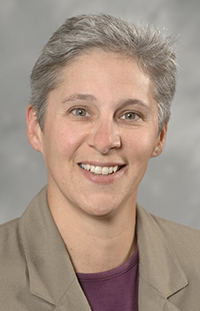 Christina DiFonzo
Christina DiFonzo
Michigan State University
This annual award recognizes outstanding contributions to extension entomology.
Dr. Christina DiFonzo received her master's and Ph.D. degrees in entomology from the University of Minnesota, working on aphid-vectored potato viruses. After graduation, she was a BARD postdoctoral fellow at the Volcani Center Agricultural Research Organization in Israel, where she completed further work on plant viruses and aphids. In 1996, she started as the extension entomologist in field crops at Michigan State University. Her specific crop responsibilities include corn, soybean, dry beans, small grain, forages, sugar beets, and hemp. She also provides expertise in aphid biology and identification for the Michigan State University diagnostic clinic, and maintains and updates the Handy Bt Trait Table for U.S. corn production. In addition to extension, she teaches courses in general entomology and in pesticide regulation and impact.
 Shannon Murphy
Shannon Murphy
University of Denver
This award is presented annually to the member of the Society deemed to be the most outstanding teacher of the year.
Dr. Shannon Murphy is an associate professor at the University of Denver. Murphy earned her B.A. from the University of Colorado at Boulder and her Ph.D. from Cornell University, both degrees in ecology and evolutionary biology. She currently teaches undergraduate courses in general ecology, insect ecology, and global change ecology, as well as graduate seminars on responsible conduct in research and a variety of entomology and ecology topics. In her undergraduate courses, Murphy has developed a series of research case studies used for student-centered learning to increase active learning approaches in class; three of these are published and available for others to use. She is passionate about increasing diversity in STEM, particularly in entomology. Over the past three years, she has developed course-based undergraduate research experiences to introduce the study of insects to a diverse group of non-STEM students. She also does continual outreach with K-12 students, including virtual activities during COVID, and has hosted elementary school teachers in her lab. She co-directs DU SciTech, which is a summer STEM camp for middle-school girls from low-income and minoritized backgrounds. Murphy is currently an editor at Environmental Entomology and Ecological Entomology.
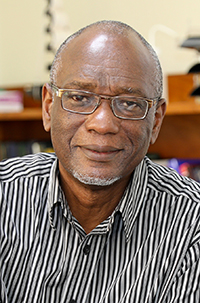 Baldwyn Torto
Baldwyn Torto
International Centre of Insect Physiology and Ecology / University of Pretoria
Each year this award is given to an ESA member who is able to demonstrate through his or her projects or accomplishments an ability to identify problems and develop creative, alternative solutions that significantly impact entomology.
Dr. Baldwyn Torto is principal scientist at the International Centre of Insect Physiology and Ecology, Kenya, and extraordinary professor, Department of Zoology and Entomology, University of Pretoria, South Africa. By leading chemical ecology research encompassing human, animal, plant, and environmental health thematic areas, he and his team have made landmark discoveries, contributing new knowledge in the interactions of diverse organisms, and tools for management of disease vectors and crop pests. Examples include discovery of a novel repellent blend from zebra skin odors for management of savannah and riverine tsetse fly vectors of African Trypanosomosis; and signature chemical cues for Aedes vectors of arboviral diseases to discriminate humans from nonhuman primates in domestic and forest environments. Torto is a recipient of numerous awards, including Journal Article of the Year and Lecture Award (2018) from the Journal of Agricultural and Food Chemistry (AGRO-division, American Chemical Society) for his work on pheromones of African indigenous fruit flies, and the Agropolis Foundation Louis Malassis International Prize for Food and Agriculture (2019) for an outstanding career in agricultural development, France. He has published in leading journals, including Proceedings of the National Academy of Sciences, Current Biology, Emerging Infectious Diseases, and Proceedings of the Royal Society B. He is a fellow of the Entomological Society of America and of the African Academy of Sciences. Torto was a postdoctoral in chemistry at the University of Maine, and he received B.Sc. (Hons), M.Sc., and Ph.D. degrees from the University of Ghana.
Early Career Professional (ECP) Awards
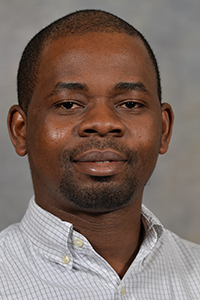 Adekunle Adesanya
Adekunle Adesanya
Cornell University
This grant provides research funds to postdoctoral ESA members who have at least one year of promising work experience, are undertaking research in selected areas, and have demonstrated a high level of scholarship.
Dr. Adekunle Adesanya is a postdoctoral research fellow at Cornell University in the Poveda Lab and is funded by the Cornell Atkinson Center. He received his Ph.D. in entomology from Washington State University and M.S. degree from Auburn University. Adesanya was born in Lagos, Nigeria, and earned his bachelor's degree in crop production and protection from Obafemi Awolowo University, Osun State Nigeria.
He is interested in the adaptation of arthropods species to stressors in their respective ecosystem and the consequences of these adaptations on fitness and survival. His Ph.D. research examined the molecular genetics of acaricide resistance in the two spotted spidermite by integrating toxicological, biochemical, and transcriptomic approaches. In his study on acaricide resistance, he was able to characterize phenotypic resistance and the underlying genetic mechanisms for diverse pest populations in multiple cropping systems. His M.S. thesis documented the role of host plant diversity and suitability on the detoxification enzymes activity in the invasive Japanese beetle. Currently, he is evaluating the role of landscape context and local management on the spread and evolution of pesticide resistance, with the goal of understanding how agricultural intensification is driving pesticide usage and resistance. He enjoys sharing his research output with farmers through extension activities and teaching the fundamentals of toxicology and integrated pest management. Adesanya has been an active ESA member since 2014, serving in multiple roles, including the Pacific Branch representative on the Student Affairs Committee, and he is currently serving as the Early Career Professionals representative on ESA's Physiology, Biochemistry, and Toxicology Section.
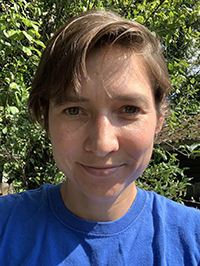 Clare Rittschof
Clare Rittschof
University of Kentucky
This award honors young professionals working within the field of entomology who have demonstrated innovation through contributions within any area of specialization (research, teaching, extension, product development, public service, etc.).
Clare Rittschof is an assistant professor of entomology at the University of Kentucky. Her work on honey bees and wild bees is broadly integrative, including approaches from landscape and behavioral ecology, neuroscience, and genomics. Her passion is to understand how social experiences, nutrition, and other factors in the environment shape behaviors. To pursue this goal, she has worked with diverse organisms and with scientists from sociology, human development, and the health sciences, in addition to entomology. Rittschof's work with honey bees focuses on the connections between behavior and health because many traits involved in disease and parasite resistance have a behavioral basis. For example, honey bee defensive behavior is a much maligned trait that Rittschof and her colleagues have found to be associated with positive outcomes, including Varroa mite resistance and pesticide tolerance. Her group is investigating the factors that give defensive bees this advantage. Rittschof's work has a strong public service component; she is currently working with beekeeper citizen scientists to study the connections between aggression, nutrition, and viral infection in honey bees. Rittschof served as an ESA Science Policy Fellow and is a current member of the Science Policy Committee and the Committee on Ethics and Rules. She teaches two novel courses: Bees & People and the Neuroscience of Pollination. Both courses draw broad biological and cultural connections between insects and humans. Rittschof encourages students to nurture their diverse scientific interests in order to forge a novel research path that crosses traditional discipline boundaries.
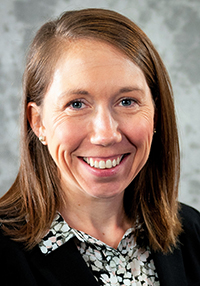 Katelyn Kesheimer
Katelyn Kesheimer
Auburn University
This award is given to a student transition or early professional who excels in entomological extension.
Dr. Katelyn Kesheimer is an assistant professor and extension specialist in the Department of Entomology and Plant Pathology at Auburn University and with the Alabama Cooperative Extension System. She holds a B.S. in biology from the University of Kentucky, an M.S. in biological sciences from Eastern Illinois University, and a Ph.D. in entomology from the University of Kentucky. Prior to starting her current position, she was an integrated pest management (IPM) extension agent with Texas A&M Agrilife Extension in west Texas.
Kesheimer's statewide responsibilities cover small grains, stored grains, pastures, and commercial turf. Her program works to develop and implement IPM programs for Alabama growers with a goal to provide practical solutions that are both economically and environmentally sustainable. Current research explores IPM tactics for invasive species such as the brown marmorated stink bug and bermudagrass stem maggot. She is also working to identify an IPM plan for a new agricultural commodity, hemp. Her program uses both traditional and modern extension methods to reach growers.
She is active in ESA and has served as branch representative and chair of the Early Career Professionals Committee. Kesheimer has helped organize regional and national symposia covering multiple topics in addition to entomological research, including diversity, gender equity, and the academic job market. Kesheimer is involved in public school and community outreach to help promote a passion for entomology.
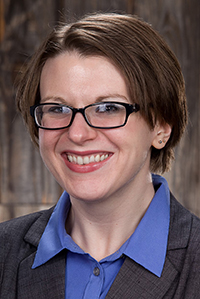 Rebecca Schmidt-Jeffris
Rebecca Schmidt-Jeffris
USDA-ARS
This award recognizes a student transition or early professional who has made outstanding research contributions to the field of entomology.
Dr. Rebecca Schmidt-Jeffris is a research entomologist for USDA-ARS in Wapato, Washington; her position focuses on biological control in temperate tree fruit. This includes determining pesticide nontarget effects on natural enemies, augmenting natural enemy populations through releases, conservation biological control through landscape manipulation, and improving knowledge of the diversity and basic biology of orchard parasitoids and predators. Current projects in her lab include developing data-based recommendations for releasing commercially available natural enemies, predator mite gut content analysis, improving pear psylla biological control by the parasitoid Trechnites, impacts of herbicide use and ground cover management on natural enemies, and augmenting and conserving earwig populations. She earned her B.S. in biology from Washburn University in Topeka, Kansas, in 2010 and received her Ph.D. in 2015 from Washington State University, where she investigated biological control of mites in apples.
Schmidt-Jeffris became involved in ESA leadership early in her career and has always enjoyed serving Society members. Her leadership roles within ESA have included the Plant-Ecosystems Section presidential line, P-IE Governing Council secretary, program chair for Southeastern and Pacific Branch meetings, Early Career Professionals Committee member, Publications Task Force member, International Congress of Entomology Student Affairs Committee co-chair, and ESA Student Affairs Committee chair. ESA has recognized her effective leadership and scholarship with the national Student Activity and Early Career Professional Extension Awards, and the Pacific Branch Comstock and Student Leadership Awards.
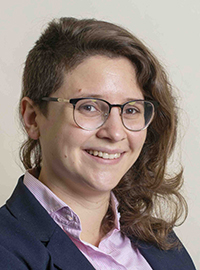 Carly Tribull
Carly Tribull
Farmingdale State College
This award is given to a student transition or early professional who excels in entomological education.
Dr. Carly Tribull is currently an assistant professor in the Biology Department at Farmingdale State College (SUNY). They began their studies in entomology as an undergraduate at the University of California, Berkeley, and continued studying parasitoid wasp systematics at the Richard Gilder Graduate School at the American Museum of Natural History. As a professor at a primarily teaching-focused institution, their goal is to provide meaningful undergraduate research experiences and mentorship in field entomology and molecular systematics. Their other great passion is comics, specifically the incorporation of science communication and education comics into the college classroom; their work on a free, online textbook for nonmajor biology students can be found at www.biologycomics.com. Additionally, as schools have pivoted to online learning, Tribull has been interested in developing resources and best practices for teaching introductory entomology online, including student-driven remote insect collecting. They've helped to develop brainstorming sessions in conjunction with ESA and have joined working groups of other entomologists. In the future, they want to broaden the resources available to entomologists, including students, at Primarily Undergraduate Institutions and their representation at ESA.
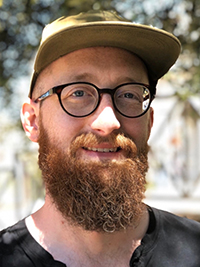 Ryan Gott
Ryan Gott
Phipps Conservatory and Botanical Gardens
This award recognizes a student transition or early professional who has made outstanding research contributions to the field of entomology..
Dr. Ryan Gott is associate director of integrated pest management at Phipps Conservatory and Botanical Gardens in Pittsburgh, Pennsylvania. He oversees insect, disease, and weed management as well as the other aspects of plant health care, from soil and water testing to fertilization needs. He earned his B.S. in biology from Purdue University and his Ph.D. in entomology from the University of Maryland in 2016.
Gott uses his platform at Phipps Conservatory to meet people where they are to have meaningful conversations about insects, plants, and their connections to our larger natural systems. He has taught numerous adult education courses on entomology, wildlife gardening, diagnosing plant health problems, insect illustration, sustainable landscaping, and more. He runs entomology-focused social media accounts across several major platforms, achieving hundreds of thousands of impressions and interactions each month. Gott's other online outreach includes an online video game stream discussing entomology and other science with co-hosts from the Field Museum and Monterey Bay Aquarium, which so far has more than 9,000 total live and recorded views across platforms. He is also a member of Nature Check, a Dungeons and Dragons-based science communication project. Nature Check plays the classic role-playing game while discussing the real science underlying the action at hand and taking listener questions. His largest public engagement project to date is the ongoing three-month-long Summer of Pollinators at Phipps Conservatory, a massive multidepartment effort to infuse pollinators into as much of our formal and informal adult, children's, and public programming as possible.
ESA Certification Corporation Awards
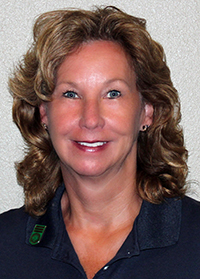 Marie Horner
Marie Horner
Arrow Exterminators Inc.
The purpose of the award is to recognize superior contributions of an ACE in the field of structural pest management.
Marie A. Horner, ACE, is vice president of government affairs and industry steward with Arrow Exterminators Inc. She has been an Associate Certified Entomologist since 2013 and launched an ACE Prep Course within the North Carolina Pest Management Association (NCPMA) three years ago. Horner credits her ability to be involved in state associations and projects such as the ACE Prep Course to the executive leadership of Arrow Exterminators. "Arrow supports its employees, its customers, and the pest control industry," said Horner.
Horner started in the industry 20 years ago as an account executive with Steritech before joining Terminix as an area manager. She credits the idea of involving mentors in the NCPMA's ACE Prep Course to Harden Blackwell, her former employer with Terminix.
Horner has developed technical training programs and spoken at industry events and state technical meetings. She is on the Board of Directors for the North Carolina, South Carolina, and Tennessee Pest Management Associations and has served on multiple NCPMA committees. She was recently the recipient of the 2020 PestVets Veteran of the Year Award. When asked what the ACE designation means to her, Horner said, "Being an ACE puts you in a different classification when you are bidding on commercial contracts, which gives you an edge. It also gives residential customers confidence in your recommendations to solve their problem. I would encourage anyone who is considering advancing their career to become an Associate Certified Entomologist."
ESA Student Awards
- Ashley B. Leach, Purdue University (ESA Eastern Branch)
- Alihan Katlav, Hawkesbury Institute for the Environment (ESA International Branch)
- Débora Montezano, Corteva Agriscience (ESA North Central Branch)
- Jacqueline Serrano, USDA-ARS (ESA Pacific Branch)
- Casey Parker, ADAPCO (ESA Southeastern Branch)
- Xiaotian Tang, Yale University (ESA Southwestern Branch)
These six awards are given to one graduate student from each ESA Branch to promote interest in entomology and to stimulate interest in attending the ESA Annual Meeting.
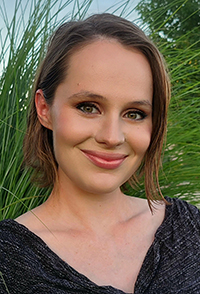 Ashley B. Leach
Ashley B. Leach
Purdue University
Dr. Ashley Leach received her Ph.D. in entomology from Cornell University in 2019 under the direction of Dr. Brian Nault. Prior to graduate school, she earned her B.S. in entomology from Michigan State University's Lyman Briggs College. For her Ph.D., Leach researched pest biology and integrated pest management (IPM) practices to manage onion thrips and associated plant diseases in onion production. Her research has helped to increase adoption of IPM practices and decrease insecticide usage in New York onion production. While pursuing her Ph.D., she was heavily involved in graduate student organizations and professional societies. In addition to holding multiple officer positions, she has also organized over four symposia for various meetings. Prior to graduate school, Leach scouted tree fruit for the agrichemical company CHS Inc. and was a technician for the Michigan Agricultural Environmental Assurance Program. Leach is currently a postdoctoral research associate at Purdue University in Dr. Ian Kaplan's program, where she is researching interactions between pollinator and pest management practices. In the future, she hopes to use her experience and education specializing in extension and agricultural pest management.
 Alihan Katlav
Alihan Katlav
Hawkesbury Institute for the Environment
Alihan Katlav is a Ph.D. candidate at the Hawkesbury Institute for the Environment, Western Sydney University, Australia, under the supervision of Associate Professor Markus Riegler. His project involves the role of bacterial endosymbionts in the reproductive biology of Kelly's citrus thrips, an Australian native pest of citrus that is invasive in New Zealand and the Mediterranean region. Katlav's research focuses on the impact of Cardinium and Wolbachia on the evolution of sex allocation and sexual conflicts in this host species, important understudied aspects of these symbiotic interactions. Additionally, he investigates the population genetic structure of this thrips species to trace its invasion routes from the native to the invasive ranges.
Katlav was born in Istanbul, Turkey. Since childhood he has been fascinated by the remarkable diversity of arthropods, and his mother has profoundly supported the growth of this passion. He completed a bachelor of science degree in plant protection from Mohaghegh Ardabili University, Iran, where his entomological interest was ignited by Professor Ghadir Nouri Ghanbalani. Wanting to study parasites of insects, he joined the laboratory of Associate Professor Hamidreza Hajiqanbar at Tarbiat Modares University, Tehran, where his master's project dealt with the systematics and biodiversity of insect-associated mites. For his thesis and research, he won the Superior Thesis Award at Tarbiat Modares University and the Farahbakhsh Award at the First Iranian International Congress of Entomology in 2015. Katlav has published nine peer-reviewed articles and has received numerous awards, including the F.G. Swain Award of the Western Sydney University to further support his Ph.D. research.
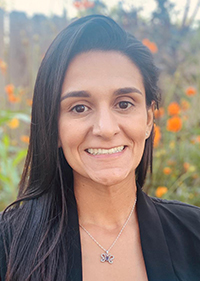 Débora Montezano
Débora Montezano
Corteva Agriscience
Débora Montezano received her Ph.D. in entomology from the University of Nebraska—Lincoln; her dissertation focused on the management of western bean cutworm when exposed to Bt corn. Previously, she earned a master's in Brazil, where she conducted research on insect-rearing methods to develop management techniques for corn pests. In the last year, Montezano was a postdoctoral researcher at the University of Nebraska—Lincoln studying the soybean gall midge, a challenging new pest. She has published 22 peer-reviewed papers, including on the topics of Noctuidae biology, behavior, and intraguild interactions. Her long-term career goal is to continue research in the area of integrated pest management to improve agricultural practices that allow for effective pest control with minimal environmental impact. Montezano is now employed as an integrated field scientist with Corteva Agriscience, where she leads trait and crop protection research projects.
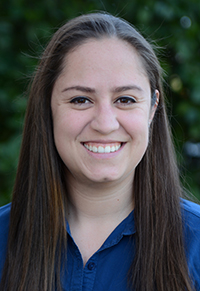 Jacqueline Serrano
Jacqueline Serrano
USDA-ARS
Dr. Jacqueline Serrano received her Ph.D. in entomology from the University of California, Riverside (UCR), under the direction of Dr. Jocelyn Millar. Serrano also received her bachelor's degree in biology from UCR, where she developed her interests in entomology and organic chemistry. Her dissertation research focused on the chemical ecology of click beetles (Coleoptera: Elateridae), specifically sex pheromones and sex attractants. During her tenure as a graduate student, Serrano published the first conclusive pheromone identifications for elaterid species from North America. As a graduate student, Jacqueline received several awards from ESA and UCR, including first and second place in the PBESA Entomology Games, presentation awards, and Outstanding Teaching Assistant for the Entomology Department at UCR. She also received several scholarships and fellowships while at UCR, including the Harry H. Shorey Endowed Scholarship, a Student Travel Award from the International Society of Chemical Ecology, and a Dissertation Year Program Fellowship.
As a student member of ESA, Serrano has organized symposia, competed with the UCR Entomology Games team, and served as chair of operations for the 2019 PBESA meeting. Currently, she is representing the Plant-Insect Ecosystems Section on the Committee on Diversity and Inclusion and looks forward to becoming more involved in ESA. Serrano is now a postdoctoral research associate with USDA-ARS at the Temperate Tree Fruit and Vegetable Research Unit, where she is working on the chemical ecology of tree fruit pests while continuing her research on click beetle pheromones and attractants.
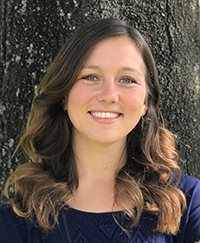 Casey Parker
Casey Parker
ADAPCO
Dr. Casey Parker recently received her Ph.D. from the University of Florida and is currently working as a technical development specialist for ADAPCO. She discovered her love for biology on the horse farm she grew up on in Ocala, Florida. Her fascination with the natural world led her to pursue a B.Sc. in entomology and nematology. During her time as an undergraduate, she took an interest in vector biology and control of public health pests. After her B.Sc., she completed an M.Sc. in entomology and nematology and a master of public health degree. Her research focused on insecticide resistance, the impact of resistance on vector competence, and developing community education campaigns to combat mosquitoes. Parker's work has been published in several journals, including Journal of Medical Entomology, Journal of Insect Science, and Journal of Vector Ecology.
Parker also enjoys engaging in science communication opportunities and getting involved in professional organizations. She has given presentations at regional, national, and international conferences and has received speaking awards at several of these meetings. She actively participates in leadership and outreach activities, such as hosting educational programs, both locally and internationally. As an ESA member, Parker has served as the chair of both the Southeastern Branch and National Student Affairs Committee, roles that allowed her to assist in planning annual meetings, symposia, and student events. Parker would like to thank ESA for providing her with these opportunities, and she looks forward to spending a career continuing to support the entomological and vector control communities.
 Xiaotian Tang
Xiaotian Tang
Yale University
Dr. Xiaotian Tang received his Ph.D. in entomology from Texas A&M University (TAMU) in spring 2020 under the direction of Dr. Cecilia Tamborindeguy. He studied vector biology and vector-pathogen interactions between the bacterial pathogen, Candidatus Liberibacter solanacearum (Lso), and its vector, the potato psyllid (Bactericera cockerelli). His main research focus areas are to identify key genes involved in the interactions between the vector and the pathogen during acquisition; to characterize the immune response of the vectors to the pathogen; and to manipulate the immune response of the vectors to disrupt the transmission of the pathogen.
Tang has published 27 peer-reviewed papers in scientific journals and has four more manuscripts that are currently under review. He has mentored four undergraduate students in research, all of whom are authors of published or under-review papers. He has participated in 14 scientific meetings and presented 11 oral talks and posters at regional, national, and international conferences. Tang has been awarded seven highly prestigious scholarships, including three times the National Scholarship, the highest academic honor for students in China. He has also received the Herbert Dean Endowed Scholarship from the Department of Entomology at TAMU and twice won the ESA President's Prize—for a student 10-minute talk in Vancouver in 2018 and for the poster competitions at St. Louis in 2019. Currently, he is a postdoctoral associate at Yale University School of Medicine, where he focuses on arthropod-borne infectious diseases.
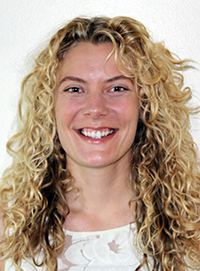 Hailey Shanovich
Hailey Shanovich
University of Minnesota
This ESA award, sponsored by Corteva, recognizes Dr. Larry Larson's role as a leader and pioneer in insect management and carries that legacy to the next generation of leaders in applied entomology.
Hailey Shanovich is a natural resource science and management Ph.D. student at the University of Minnesota in Dr. Brian Aukema's Forest Entomology Lab. Her dissertation research focuses on creating pest management plans for arthropod pests and identifying resistant genotypes of hybrid hazelnuts for the Midwestern United States. For her research as an entomology master's student, she studied the susceptibility of cold-hardy apple cultivars to the brown marmorated stink bug and its natural enemies in Dr. Robert Koch's Integrated Pest Management Lab at the University of Minnesota, graduating in 2019 with a minor in applied plant sciences.
Prior to her graduate studies, she completed internships with Seminis Vegetable Seeds Inc. and the Tandana Foundation in Ecuador and WWOOFed in Italy for three months, and she worked as a technician in Dr. Rick Lindroth's Chemical Ecology Lab at the University of Wisconsin—Madison. She received her B.S. in plant biology from the University of Wisconsin—Madison in 2016, where she completed a research project on the genetic inheritance of beta-carotene in carrots.
She is passionate about effective and inclusive teaching and outreach. Outside the realm of entomology, she enjoys hiking and camping, dancing, martial arts, and drawing.
 Sajjan Grover
Sajjan Grover
University of Nebraska—Lincoln
The purpose of this ESA award is to encourage graduate students working with insects or other arthropods in the broad areas of physiology, biochemistry, and molecular biology to affiliate with ESA's Integrative Physiological and Molecular Insect Systems Section and to attend the ESA Annual Meeting.
Sajjan Grover received his bachelor's degree in agriculture from Punjabi University and master's in entomology from Punjab Agricultural University, India. He started his Ph.D. at University of Nebraska—Lincoln (UNL) under the supervision of Dr. Joe Louis in spring 2017. His main research interests are plant resistance to insects and plant signaling mechanisms. Grover's Ph.D. research topic is physiological, biochemical, and molecular insights into sorghum-sugarcane aphid interactions. He is trying to elucidate the complex sorghum defense mechanisms to sugarcane aphids using omics approaches. Besides his main projects, he has accomplished some side projects on maize-corn leaf aphid, sorghum-greenbugs, and sorghum-fall armyworm interactions. He is also interested in understanding the mechanisms by which insect elicitors alter the plant defense responses.
In the past years of his Ph.D., Grover has been awarded with several fellowships and awards at the university and regional level for his academic excellence, research potential, and scholarship. Grover has published eight peer-reviewed articles, four of them as the first author. He has participated in various outreach activities and served on various other committees at UNL. He is also a member of the Strategic Framework for Graduate Education Committee in the College of Agricultural Sciences and Natural Resources, UNL. Recently, he served as a president of the Entomology Graduate Student Association, Bruner Club, at UNL. He is also a UNL student representative, North Central Branch Student Affairs Committee. He is doing an internship with Corteva Agriscience this summer. His research and leadership experiences have been an important part of scientific training to achieve his long-term career goals in academia/industry.
 Sandra Schachat
Sandra Schachat
Stanford University
Sponsored by Bayer, this award will be presented annually to recognize a student for outstanding contributions to the Society, his/her academic department, and the community, while still achieving academic excellence.
Sandra Schachat serves on ESA's Student Affairs Committee (SAC), SysEB Leadership Council, and Diversity & Inclusion (D&I) Committee. As a member of the SAC, she has cohosted two "Know Before You Go" webinars and has written three posts for ESA's "Entomology Today" blog, and she will host an upcoming webinar this fall. She is a founding member of the D&I Committee's Best Practices Subcommittee. She has published in three ESA journals and has reviewed manuscripts for two more. Her articles about art history in American Entomologist have explored changing public attitudes toward insects and entomology. She has been among the first students to publish in ESA's newest journal, Insect Systematics and Diversity.
She is one of two students at her university who serve in a volunteer leadership role in Graduate Pathways to STEM, an annual conference for undergraduates from under-represented backgrounds. She represents the School of Earth in her university's Graduate Student Council, where she also serves as one of two co-chairs of the Diversity & Advocacy Committee.
She has published 19 first- and sole-authored scientific papers in refereed journals. Her M.S. thesis won the Snodgrass Award from SysEB. Her published papers range from the feeding habits of ancestral hemipteroids, to the comparative morphology of moth wings, to the amount of oxygen in the atmosphere 350 million years ago and whether this impacted insect evolution, to novel statistical techniques for quantifying insect herbivory, to parasitoids' impact on overall insect diversity.
CONTACT: Joe Rominiecki, jrominiecki@entsoc.org, 301-731-4535 x3009
ABOUT: ESA is the largest organization in the world serving the professional and scientific needs of entomologists and people in related disciplines. Founded in 1889, ESA today has nearly 7,000 members affiliated with educational institutions, health agencies, private industry, and government. Headquartered in Annapolis, Maryland, the Society stands ready as a non-partisan scientific and educational resource for all insect-related topics. For more information, visit www.entsoc.org.
